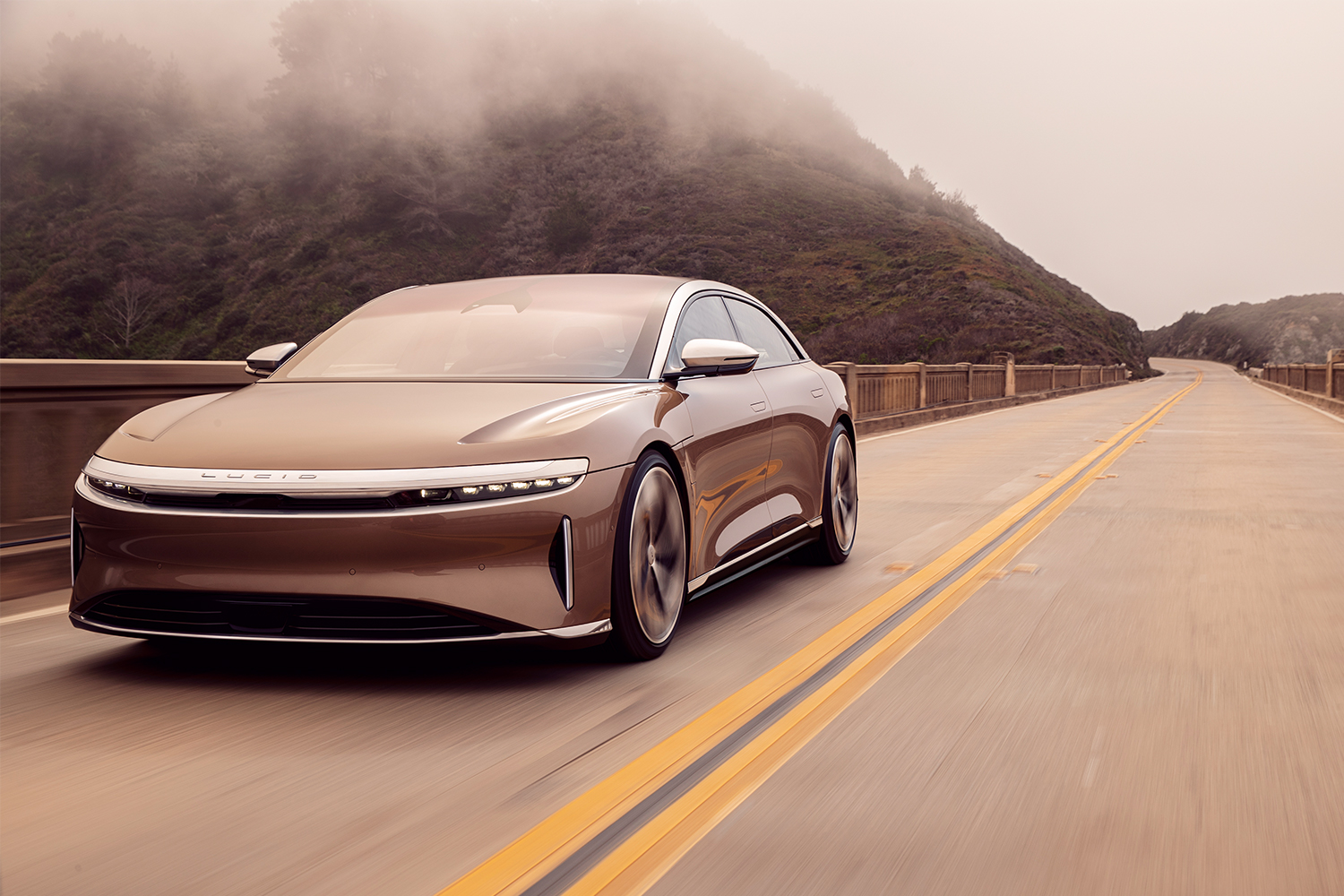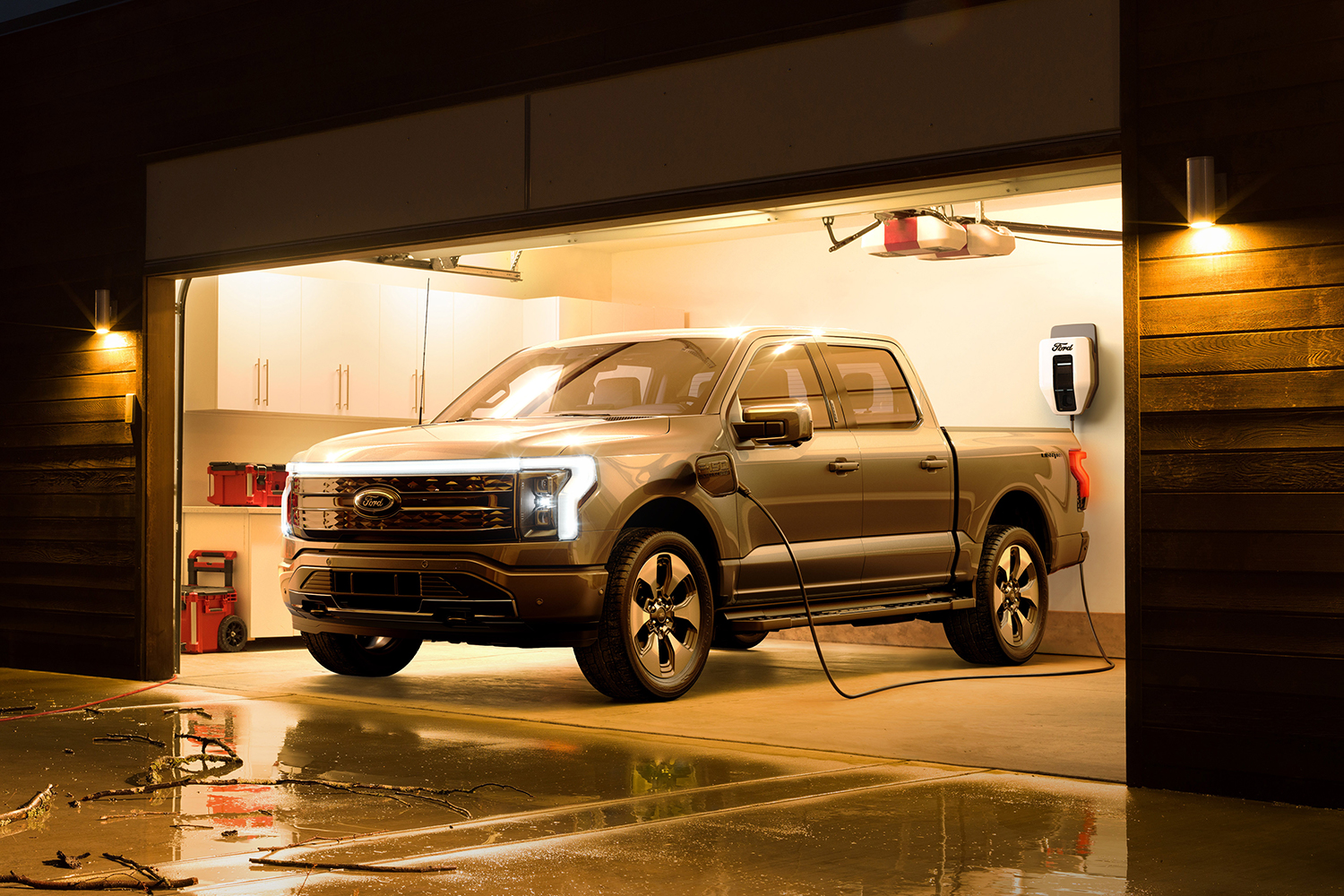Electric cars still feel new even though they’ve existed in the U.S. in their current form for over a decade. They’re going to continue to feel new until a good chunk of the American population takes the electric plunge. But in 2020, EVs made up less than 0.4 percent of registered vehicles, according to the National Highway Traffic Safety Administration. So it’s going to be a little while.
The problem is that people fear change. The new is often scary, confusing and hard to accept. In the realm of electric cars, that fear isn’t helped by the fact that there have been a number of high-profile EV battery fires in the last few years, the most significant outcome being the recent recall of every single Chevy Bolt ever made, which amounts to more than 140,000 vehicles. While General Motors says the issue with battery production has been fixed and battery replacements will begin shipping as soon as mid-October, car buyers may now be wary when it comes to buying an electric car. Is it safe? Can the technology be trusted? Is it more dangerous than buying a traditional gas car?
One person who’s been happy to weigh in is Tesla CEO Elon Musk. When a Twitter user posted about Tesla’s electric vehicles supposedly being less likely to catch on fire than the average car, Musk responded, “Not super surprising, given that internal combustion engine cars literally have ‘combustion’ in the name.”
To break through the Tesla fans on one end and the attention-grabbing headlines on the other, we reached out to the NHTSA to see what the data says.
There’s the Problem of Cars Catching on Fire …
The simple answer to the question of whether EVs are more likely to catch on fire than gas cars appears to be no, according to Battelle, a nonprofit research and development company that works in association with the NHTSA. The group studied lithium-ion batteries, as those are the most common types in modern EVs, including cars made by Tesla and GM.
“The main conclusion from that study: the propensity and severity of fires and explosions from the accidental ignition of flammable electrolytic solvents used in Li-ion battery systems are anticipated to be somewhat comparable to or perhaps slightly less than those for gasoline or diesel vehicular fuels,” Battelle wrote in 2018.
This is not a simple problem, however, and in 2021 a spokesperson for the NHTSA was more cautious about the answer, admitting that more research needs to be done.
“Given [the] relatively small share of [electric] vehicles on U.S. roadways currently and the small sample size of EVs involved in crashes, the agency is unable to make conclusions, at this time, on the relative rate of crash-related vehicle fires between electric and gas-powered vehicles,” the spokesperson told InsideHook. “NHTSA continues to monitor its data systems and conducts special crash investigations of electric vehicle fire incidents to better understand the circumstances and consequences of vehicle fires. Because only about five percent of vehicle fires are crash related, NHTSA is working with other agencies to collect more comprehensive data on all vehicle fires.”
“The agency is working with other stakeholders to support a safe expansion in the use of electric vehicles,” they added.
Part of that work comes through the agency’s Battery Safety Initiative, which was announced at the beginning of the year. That overarching project includes investigating and collecting data on battery incidents in the U.S., as well as working on electric vehicle safety globally with international partners through the U.N.
… and the Problem of When They Catch on Fire
According to data from the National Fire Protection Association, in 2018 the “leading causes of vehicle fires were mechanical failures or malfunctions and electrical failures or malfunction.” In other words, not car crashes. Considering most cars on the road are internal combustion engine cars, not EVs, it would seem there’s reason to fear your gas car will catch on fire as much as a shiny new electric one. After all, there are batteries and electrical systems in gas cars, too.
However, electric cars are unique in that they are mostly “fueled” in the garages of owners through charging ports — in essence, they are plugged in and active while at home, where gas cars are generally dormant. This situation has been linked to a number of battery issues with Chevy Bolts, enough that GM still says all Bolt owners should park their vehicles outside immediately after charging and should not leave their vehicles charging inside overnight. There have been a number of Tesla garage fires as well, with one case in 2020 involving two Model S sedans detailed in a harrowing report by The Washington Post.
“Battery-powered vehicles have not been shown to catch fire at rates higher than gasoline cars, but when fires do erupt, they burn longer and hotter, propelled by lithium-ion batteries that supercharge the blazes, experts say,” the Post reported at the time.
When asked about the difference between fires in these two types of vehicles, the NHTSA spokesperson told us, “In EV propulsion batteries, cells are tightly packed together for performance and packaging reasons. Consequently, excess heating and mechanical pressure from a failing cell can induce damage and potential failure of adjacent cells. Therefore, EV battery fires may have the appearance of taking longer to extinguish, because internally new cells are potentially igniting due to a phenomena known as thermal runaway and propagation.”
But in today’s electric vehicles, more cells are desirable, as they can lead to longer range and better overall performance. If there are more cells, then there’s a larger chance for a small fire cascading into a larger one. That’s simply not an analogous issue you’ll find in gas cars.
As Bloomberg reported last week, battery manufacturers and companies using their technology are taking the fire issue seriously, not just in the automotive sector but everywhere electric power is booming. Lithium-ion batteries are not going away anytime soon — as Haresh Kamath, director of energy storage and distributed generation at the Electric Power Research Institute in California, told the outlet, that tech has “really been a revolutionary advance for us as a society” — but the onus is now on the providers of that technology to prove to consumers that their tech is safe.
The NHTSA is taking the issue seriously with the Battery Safety Initiative, GM is taking the issue seriously by recalling all Chevy Bolts despite just 13 reported fires, and it would behoove everyone else, Musk included, to do the same, even if the data says that you’re statistically going to be fine driving that electric car.
This article appeared in an InsideHook newsletter. Sign up for free to get more on travel, wellness, style, drinking, and culture.


























